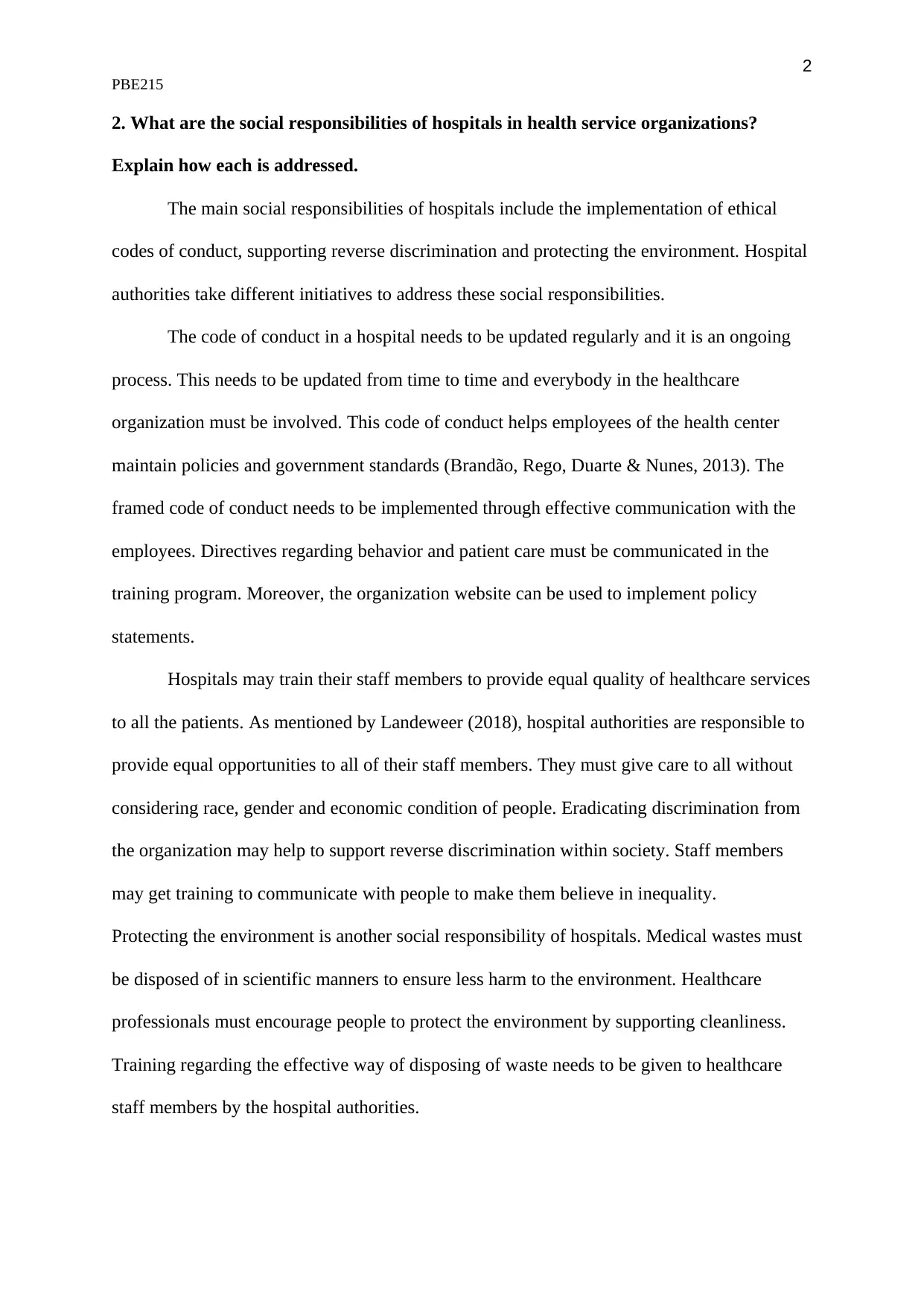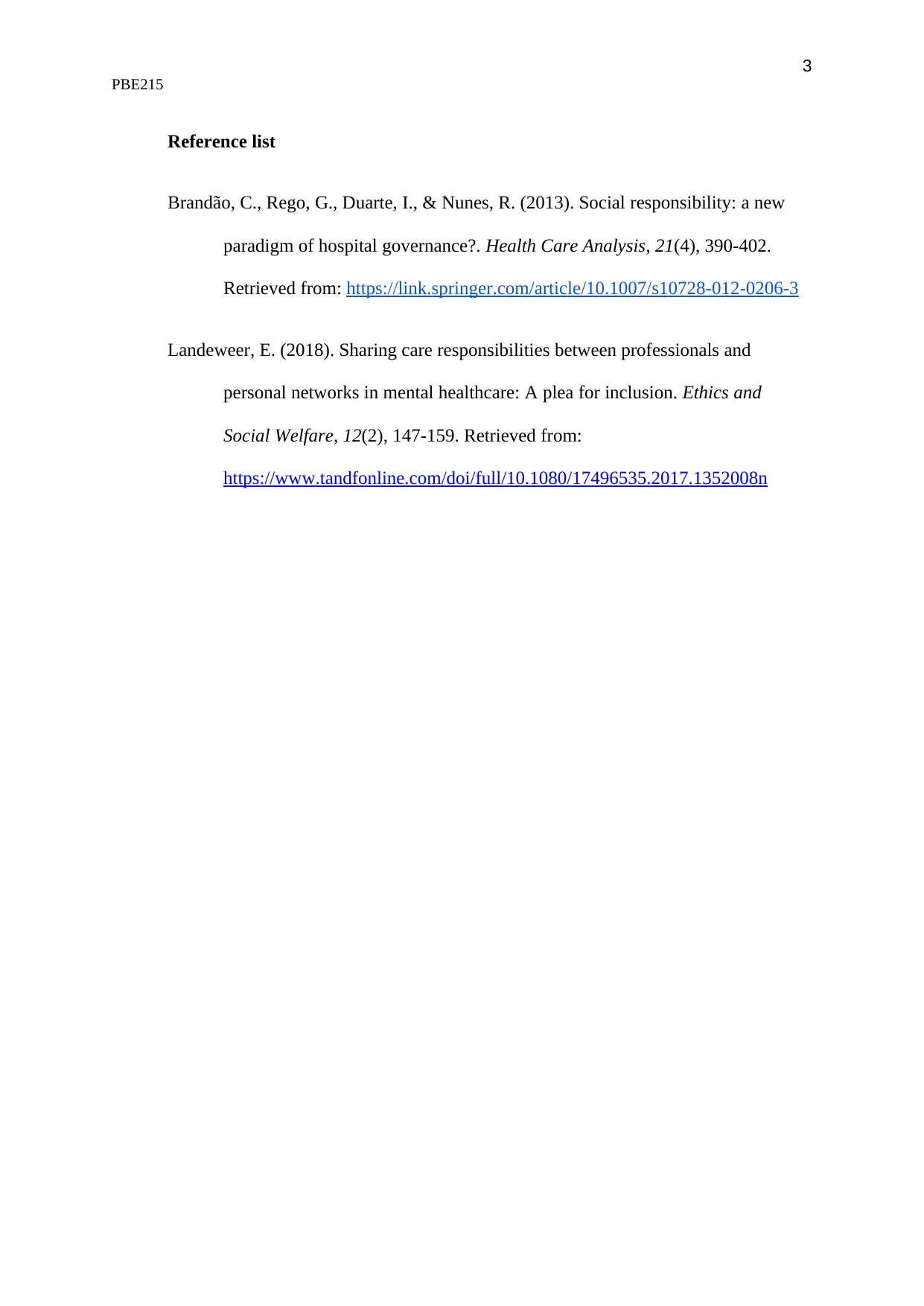PBE215: Social Responsibilities in Healthcare Organizations Report
VerifiedAdded on 2022/09/01
|3
|411
|24
Report
AI Summary
This report, created for PBE215, delves into the social responsibilities of hospitals, emphasizing the implementation of ethical codes of conduct, the support of reverse discrimination, and the importance of environmental protection. The report highlights the need for regularly updated hospital codes of conduct and the involvement of all healthcare staff in their implementation, including through training programs and policy statements. It also addresses the responsibility of hospitals to provide equal opportunities and care to all patients, regardless of their background, supporting reverse discrimination to combat societal inequalities. Furthermore, the report emphasizes the necessity of proper medical waste disposal and promoting environmental cleanliness through staff training. The report references relevant academic sources to support its findings.
1 out of 3










![[object Object]](/_next/static/media/star-bottom.7253800d.svg)